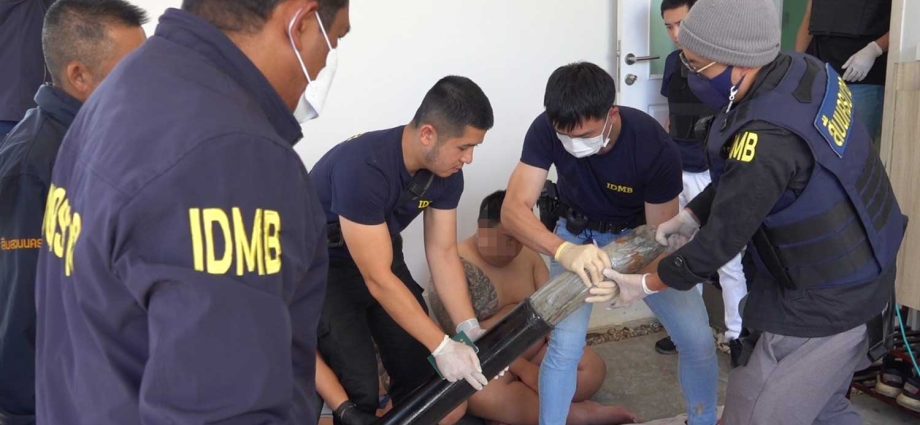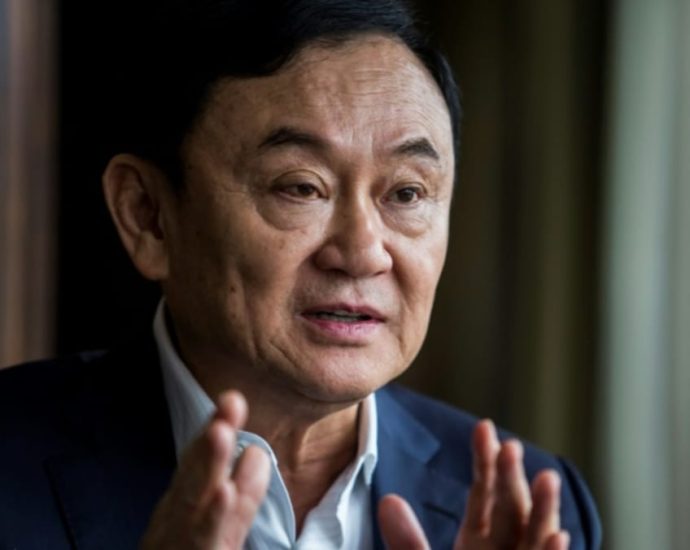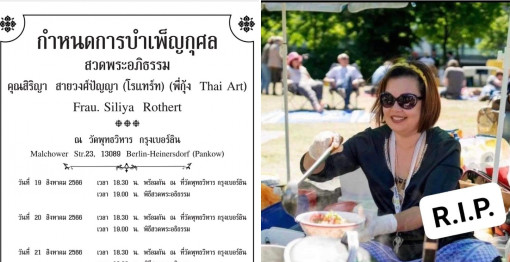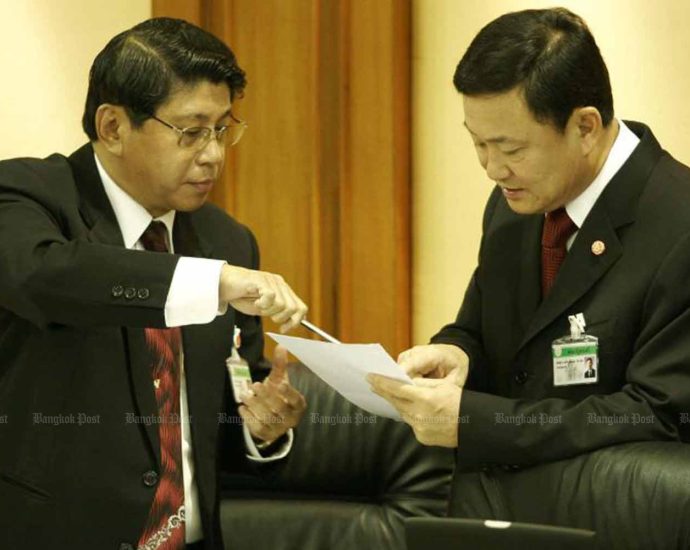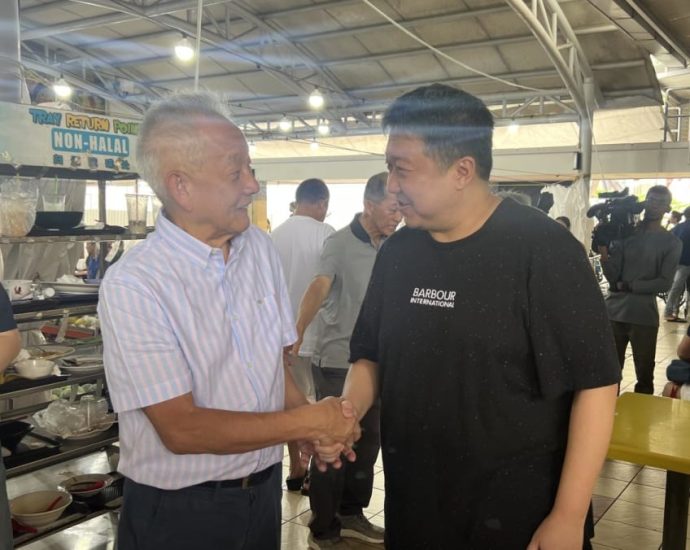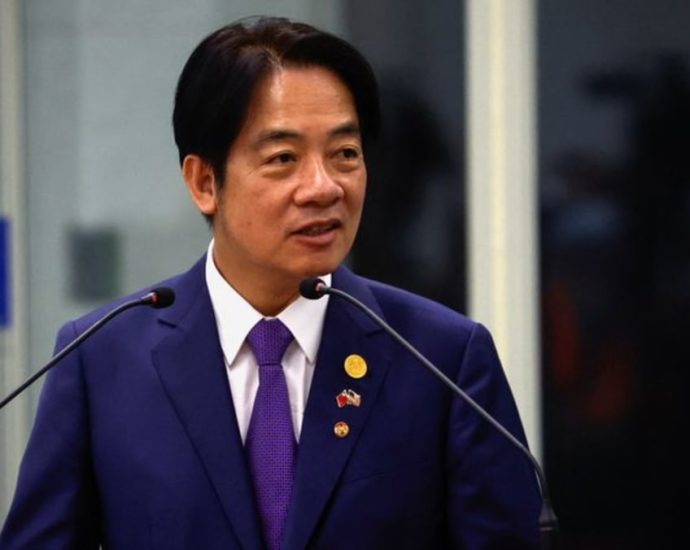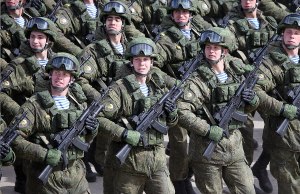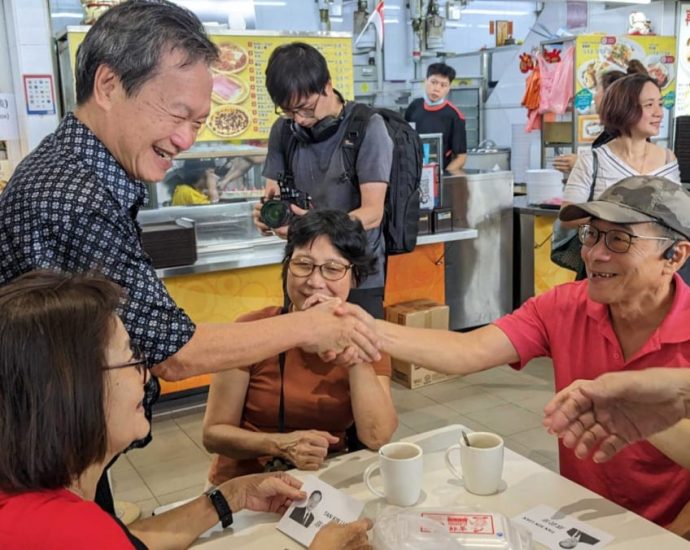Taiwanese held for smuggling drugs in drive shafts
Seven suspects including Thai woman arrested following raids in Bangkok and Samut Prakan
PUBLISHED : 19 Aug 2023 at 16:53

Police arrested six Taiwanese men and a Thai woman in Bangkok and Samut Prakan on Friday for allegedly smuggling cannabis and crystal methamphetamine in truck drive shafts.
[embedded content]
Deputy national police chief Chinnapat Sarasin said the arrests followed a three-month investigation into the “Khai Huang” drug trafficking network. The arrests took place once police learned that the gang was preparing to ship the drugs overseas.
Two Taiwanese men — Chen You Ning, 34, and Lee Min Chang, 26 — were apprehended at a rented luxury house in Lat Krabang district of Bangkok on Friday morning, he said. They have been charged with possession of narcotic drugs with the intent to distribute.
Inside the house police found 17 drive shafts from heavy trucks. The shafts were about to be exported to Taiwan but inside them police discovered 1.06 kilogrammes of crystal meth or “ice” and 10kg of cannabis.
There was also equipment believed to be used to pack the drugs inside the drive shafts.
Police said Mr Chen admitted that he headed a drug gang in Taiwan. He was arrested there on narcotics charges seven months ago and released on bail. He fled by hiding aboard a cargo vessel for 15 days before reaching Thailand where he resumed his business, Pol Gen Shinapatra said.
The suspect said he had seen reports about drive shafts being used to smuggle drugs and copied the trick. He reportedly bought the equipment he needed in Chon Buri.
He also bought a kilogramme of crystal meth from a Taiwanese friend in Bangkok for 230,000 baht and sourced 40kg of cannabis from shops in Bangkok for about 70,000 baht. He paid using cryptocurrency, police said.
The other suspect, Mr Lee, was wanted in Taiwan on fraud charges.
Mr Chen’s confession led police to another rented house in Bang Phli district of Samut Prakan where officers arrested four more Taiwanese men and a Thai woman. They have been charged with having illegal drugs in their possession
Tseng Yen-Ming, 31, Lin Che-Cheng, 24, Chen Yi-Wen, 23, and Chu Chun-Yen, 22, were wanted in Taiwan for fraud, narcotics offences, money-laundering and gambling charges.
The Thai woman, identified as Apinya Udom, is a 24-year-old native of Ubon Ratchathani and the girlfriend of Tseng Yen-Ming.
The four men and the woman were suspected of producing a drug cocktail called “Happy Water”. It is made by dissolving other drugs – typically a combination that can include ecstasy, methamphetamine, diazepam, caffeine and tramadol – in hot water or mixing them with sweetened drinks. Police found unspecified amounts of crystal meth and ketamine at the house.
The house in Samut Prakan was also used as a venue for drug parties, said Pol Maj Gen Theeradet Thumsuthee, investigative chief of the Metropolitan Police Bureau and head of the arrest team.

